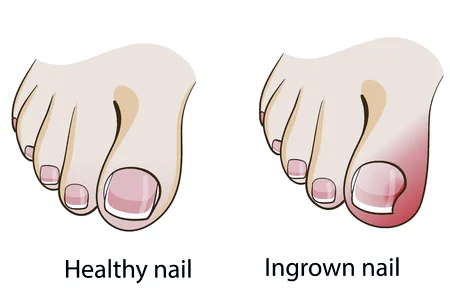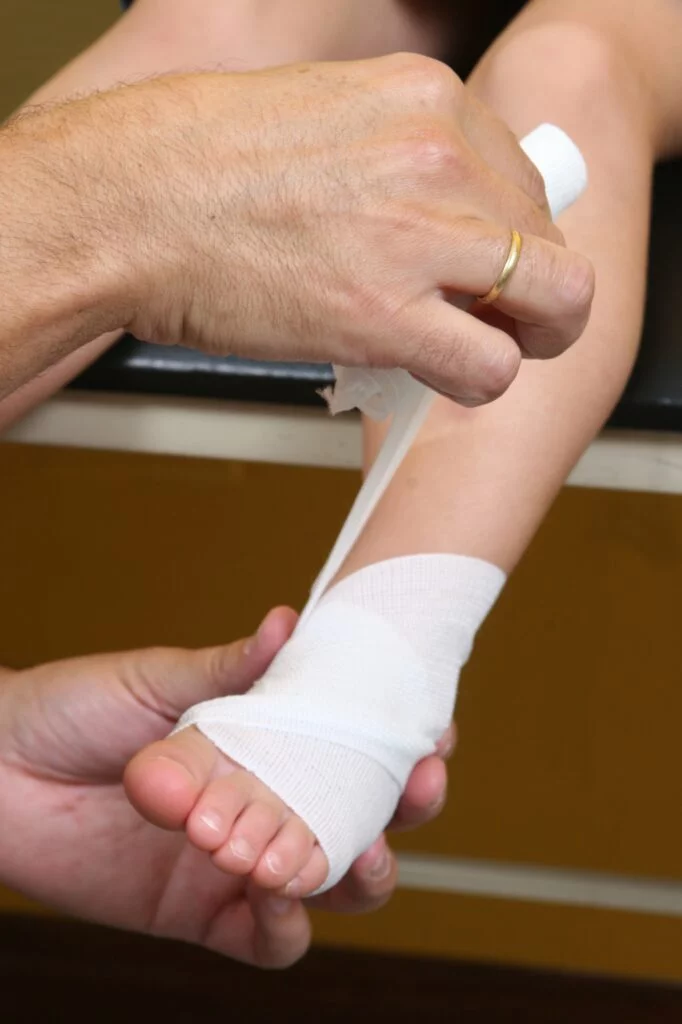Table of Contents
Introduction - Ingrown Toenail
Ingrown toenails are nails where the corners or sides grow into the nearby soft tissue. The big toe is the most common location, but any toenail may become ingrown.
An ingrown toenail may be caused by improper trimming of the nail where the corners are curved. Heredity may play a part as can pressure on the toes from crowding or tight shoes.
Ingrown Toenail Symptoms
- Pain
- Swelling
- Redness
- Drainage
- Odor
Treating an Ingrown Toenail
If you suspect an ingrown toenail, soak the foot in soapy water or a warm saltwater bath, then smooth on antiseptic lotion and bandage. If there is no improvement in a day or so, visit your podiatrist. Over-the-counter medications are ineffective, and don’t try to remove any part of the nail yourself.
For those with diabetes, peripheral vascular disease or another circulatory disorder, do not attempt to self-treat an ingrown nail. Get help from a podiatrist as soon as possible.
See your foot doctor if there is any sign of infection around the toenail such as drainage or excessive redness. To eliminate an ingrown toenail, the doctor will remove the ingrown portion and treat the infection with oral or topical medication. For chronic problems, the corner of the nail along with its root will be removed.
Preventing Ingrown Toenails
- Wear comfortable shoes with a wide toe box.
- Avoid wearing high heels.
- Trim toenails straight across with toenail clippers and don’t round or dig into the corners.
- Don’t tear or rip the nail edges.



